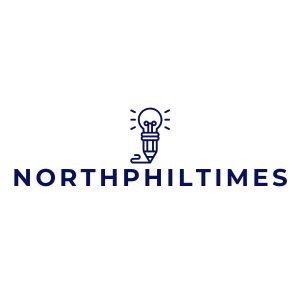Freelancers often juggle multiple projects at once, making time feel like a slippery fish. They know that without proper time tracking, they risk losing not just hours but also hard-earned dollars. Imagine spending hours on a project only to realize you forgot to bill for half of it! Time tracking isn’t just a tool; it’s a lifeline that helps freelancers stay organized, accountable, and, most importantly, profitable.
Table of Contents
ToggleImportance Of Time Tracking For Freelancers
Effective time tracking plays a crucial role in a freelancer’s success. First, it increases productivity by allowing freelancers to identify how much time they spend on different tasks. Observing time allocation provides insights for better prioritization of projects. Understanding these dynamics can lead to improved workload management.
Second, freelancers benefit from enhanced accountability. Accurate tracking reflects the hours worked, helping them justify their pricing to clients. Clients often appreciate transparency regarding hours dedicated to specific tasks. This builds trust and strengthens professional relationships.
Third, consistent time logs simplify invoicing. Freelancers can easily calculate billable hours when they track time meticulously. Ensuring invoices reflect time accurately minimizes disputes and accelerates payment processes. Quickly receiving payments contributes to financial stability.
Fourth, freelancers gain the ability to set realistic deadlines. By analyzing past projects, they can determine how long similar tasks might take in the future. This data-driven approach improves project estimations and helps clients set expectations accordingly.
Finally, using time tracking tools can uncover patterns of distraction. Identifying activities that disrupt focus allows freelancers to implement strategies for minimizing interruptions. Once addressed, productivity can significantly increase.
Time tracking isn’t merely a task on a to-do list. Instead, it serves as a foundation for better time management, leading to greater profitability and success for freelancers.
Key Features To Look For In Time Tracking Tools
Choosing the right time tracking tool can significantly impact a freelancer’s efficiency. Key features enhance usability and streamline the overall experience.
User-Friendly Interface
A user-friendly interface simplifies time tracking for freelancers. Look for intuitive designs and easily accessible features. A clean layout reduces the learning curve, enabling users to focus on their tasks rather than struggling with technology. Quick navigation allows freelancers to input their time without unnecessary delays.
Reporting and Analytics
Reporting and analytics features offer essential insights into time management. Graphs and charts visualize time spent on various tasks, helping freelancers identify productivity patterns. Detailed reports facilitate better decision-making regarding project prioritization and timelines. Data-driven analysis helps freelancers justify their rates and create more accurate estimates for future projects.
Integration Capabilities
Integration capabilities ensure seamless workflow across different platforms. Look for tools that connect with project management apps, invoicing software, and calendars. Effective integration helps streamline processes and minimizes redundant tasks. A well-integrated time tracker allows freelancers to consolidate their tools, making time management more efficient.
Top Time Tracking Tools For Freelancers
Freelancers benefit from a variety of time tracking tools designed to enhance productivity and organization. These tools streamline time management while providing valuable insights.
Tool 1: Overview and Features
Toggl Track stands out for its user-friendly interface, making time tracking straightforward for freelancers. Its one-click timer allows for immediate tracking, ensuring no hours go unrecorded. Features like detailed reporting and project categorization facilitate better workload analysis, while integration with platforms like Asana and Trello simplifies workflow management. Freelancers appreciate its mobile app that tracks time on the go, enhancing flexibility. Toggl Track also offers features for generating invoices directly from logged hours, which minimizes administrative tasks and speeds up payment processes.
Tool 2: Overview and Features
Harvest is another popular choice among freelancers seeking an intuitive time tracking solution. This tool excels with its robust reporting capabilities, providing insights into project progress and profitability. Users can create and send invoices, linking their time entries directly to payment, which streamlines the billing process. Harvest enables budget tracking for projects, allowing freelancers to maintain financial control. Its integrations with other tools, like Slack and QuickBooks, boost collaboration and financial management. Overall, Harvest aligns with freelancers’ needs for efficient time management and client relationship maintenance.
Best Practices For Effective Time Tracking
Effective time tracking involves several best practices that enable freelancers to maximize their productivity. Following these guidelines can lead to improved outcomes and overall efficiency.
Setting Clear Goals
Establishing clear goals allows freelancers to understand their priorities better. Specific, measurable objectives illuminate the path forward, ensuring focus on critical tasks. Defining short-term and long-term goals clarifies what needs attention immediately versus what can wait. Goals aligned with project timelines aid in maintaining steady progress. By writing down goals, freelancers create a visual reminder that keeps them motivated and accountable. Frequent reassessment of these goals helps adapt to changing circumstances or new projects.
Regularly Reviewing Your Time Data
Reviewing time data regularly provides crucial insights into working habits. Frequent analysis reveals how much time is spent on various tasks, leading to smarter work strategies. Observing patterns in time usage indicates areas needing improvement. Adjusting daily routines based on this data fosters better time management. Logging time data consistently simplifies identifying distractions, allowing freelancers to implement the right solutions. Lastly, engaging with this data cultivates a habit of continuous improvement, enhancing overall efficiency in future projects.
Time tracking is more than just a tool for freelancers; it’s a vital component of their success. By embracing effective time management practices, freelancers can enhance productivity and accountability while ensuring accurate invoicing. The right time tracking tools not only simplify the process but also provide valuable insights into work habits.
With features that promote organization and integration, freelancers can streamline their workflows and focus on what truly matters—their projects. Adopting best practices in time tracking empowers freelancers to set realistic goals and continuously improve their efficiency. Ultimately, mastering time tracking paves the way for greater profitability and long-term success in the freelance world.





